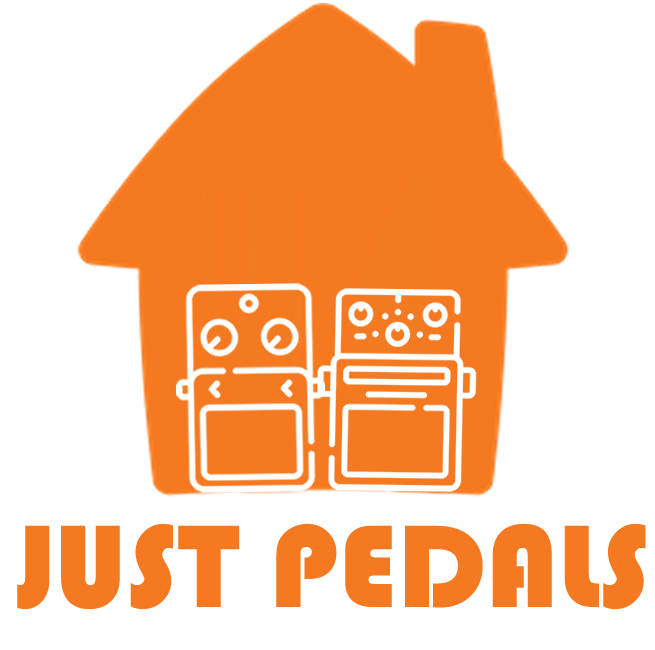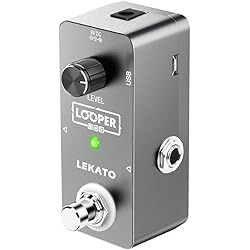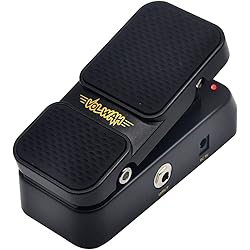just a load of Wah Video – Guitar Effects Pedal Lesson: How To Use A Wah Pedal
Wah Video – Guitar Effects Pedal Lesson: How To Use A Wah Pedal
SONICAKE Auto Wah Pedal Envelope Filter Funky Bass Guitar Effects Pedal Cry-Bot
£25.99
100% Analog Envelope Filter/Auto Wah by Picking Dynamics Designed for both Guitar & Bass with Fast and Accurate Tracking Wide Range Funky Tone Shaping with 4 useful Knobs True Bypass Footswitch keeps a clean Signal Path Auto Wah Pedal working with 9V… read more
LEKATO Guitar Loop Effect Pedal 5 Minutes Unlimited Overdub Recording Time Guitar Looper Electric Loop Pedel Station for Guitars & Bass Keyboard Musical Instruments
£39.99
★ SOLID CONSTRUCTION : The loop station is ultra simple design and super mini size, made of aluminum alloy, very convenient and durable. Let you out to show there is no burden. Enjoy your own fun and colorful life. ★ UNCOMPRESSED AUDIO: The looper pr… read more
SONICAKE Mini Active Wah Volume Effect Guitar Pedal 2 in 1 VolWah Expression Pedal
£49.99 £42.74
100% Analog Volume/Wah 2 in 1 Pedal with a lightweight casing but yet truly Robust and Well-Built . Active Volume Control can keep away from Impedance Mismatch Troubles . Crybaby Style Vintage Wah Sound. Switch between Volume & Wah by the hidden Foot… read more
Donner Guitar Looper Pedal with Drum Machine, 40 Slots 160 mins Looping Time Stereo Loop Pedal, 110 Drum Grooves, Tap Tempo, Fade Out – Circle Looper
£108.89
[2 in 1 Looper Drum Machine] 44.1kHz, 24bit high-quality stereo looper with 100 different drum grooves from 10 unique music styles and 10 types of metronome settings. [Large Capacity Loop Pedal] 40 memory slots and each can store 4 minutes record, 16… read more
Mooer MNR1 Noise Killer Gate Pedal
£57.99 £54.99
Hard Mode: Provide hard effect of noise reduction Soft Mode: Provide soft effect of noise reduction Very small and exquisite full metal shell True bypass DC 9V Adapter power supply
Valeton Guitar Pedal Multi-Effects Processor with Expression Pedal Guitar Bass Amp Modeling IR Cabinets Simulation Multi Language Stereo OTG USB Audio Interface GP-100
£108.99
140 Built-in Guitar/Bass/Acoustic Effects with 45 Legendary Amp Models and 40 carefully selected IR Cabinet Simulations, 24-bit 44.1kHz Signal Processing 100 Built-in Drum Rhythms and 90 Seconds Looper, 198 Presets, Adjustable Signal Chain with Maxim… read more
















